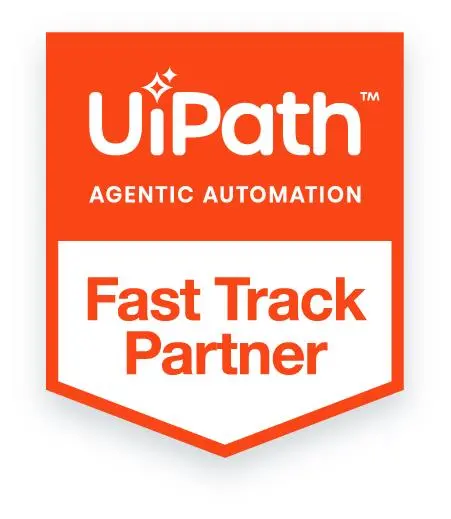
n today’s constantly evolving healthcare environment, the need to increase organizational productivity while at the same time ensuring accuracy is a continuous challenge. Medical billing is one of the most crucial segments of the healthcare revenue cycle and is not exempt from challenges, errors, and inefficiencies. Allow me to introduce Robotic Process Automation (RPA) – the technology that is still fairly new, yet it has the potential to revolutionize the medical billing process. AuxilioBits is at the forefront of this revolution, providing the latest RPA solutions that improve the level of accuracy and reduce time and cost for healthcare organizations.
Understanding Robotic Process Automation (RPA) in Medical Billing
What is RPA?
Robotic Process Automation (RPA) is a type of technology in which software robots or “bots” perform repetitive work that consists of predefined patterns. In medical billing, RPA is capable of performing several tasks that are normally done by people, including data input, claim processing, and invoice management. AuxilioBits uses these bots to imitate humans in their interactions with digital systems; thus, they execute tasks with efficiency, speed, and accuracy without getting tired or bored, day or night.
RPA in Healthcare
The healthcare industry is increasingly adopting robotic process automation for medical billing due to the prevailing need for accuracy, regulatory compliance, and efficiency. Although RPA was earlier used in manufacturing and finance industries, it has been incorporated in the healthcare industries in tasks such as patient appointments, supply chain, and most critically, billing. With these repetitive activities being handled by the bots, human resources can be utilized in better value-creation areas such as patient care and decision-making. In this transformation, AuxilioBits is at the forefront of making this transformation by assisting healthcare organizations in billing effectively.
The Role of RPA in Medical Billing
In medical billing, RPA can cover all the aspects of billing including data entry of patient’s details and posting payments. This entails endorsing insurance information, authorizing claims, handling denials as well as preparing invoices. Robotic process automation for medical billing offered by AuxilioBits can automatically search for data in several systems, capture the required information, and process it with minimal errors that cause rejections of claims or delays in payments.
Benefits of Implementing RPA in Medical Billing
Increased Efficiency
It is also important to note that one of the best features of RPA in medical billing is the fact that it can significantly enhance efficiency. The RPA bots of AuxilioBits can work much faster than human beings and therefore, enable healthcare providers to deal with many billing tasks within a shorter duration. This speed not only enhances cash flow but also lightens the paperwork of staff, so that they can focus on more important issues that involve decision-making.
Enhanced Accuracy
Manual billing process is also prone to human related errors such as wrong billing, rejected claims and delayed payments. RPA does not allow such mistakes to happen because it follows instructions and rules as per the process designed for it. For instance, while typing patient information or handling insurance claims, the RPA solutions by AuxilioBits check whether all the required fields have been filled in to avoid any mistake that may affect the billing processes.
Cost Savings
RPA can drive significant cost savings. Since the tasks that are automated can be done by full time employees, healthcare providers are in a position to cut down their expenses. Furthermore, it leads to fewer claim denials and rejections, and hence, the costs incurred due to reprocessing of the claims are also cut down. In the long run, the ROI of the RPA is likely to be impressive, especially for large healthcare institutions with high billing transaction processing volumes.
Scalability
The other major benefit of RPA is its ability to scale up or down depending on the needs of the business. In any case, as a healthcare provider develops, the number of billing activities increases. In its RPA services, AuxilioBits has built the ability to integrate increased workloads without having to hire more staff. This versatility makes RPA suitable for healthcare organizations that want to diversify their services without compromising on productivity and precision.
Improved Compliance
Medical billing is a highly over-saw process that has various compliance rules that differ from one region to another and payers as well. RPA of AuxilioBits also assists in compliance since it guarantees that the billing processes are in accordance with the current legal requirements. By using bots, it is possible to avoid non-adherence to new regulations on billing practices since bots can be set to update such practices automatically.
Better Resource Allocation
AuxilioBits’s RPA also helps healthcare providers free up more time for human labor to be spent on more important tasks. For instance, staff can devote their time to patients, clients, and other matters that a machine cannot handle. This not only increases efficiency in operations but also increases patient satisfaction and quality of service.
Real-World Applications of RPA in Medical Billing
Claims Processing
Insurance claims processing is one of the most extensive processes that take a lot of time when it comes to medical billing. With RPA, it can help to submit claims by automating the process to ensure that the claims are submitted correctly and on time. Further, it can monitor the status of the claims and notify staff of any concerns, such as denial of the claim or request for further information.
Payment Posting
Payment posting can also be made easier through RPA because it can help to match payments with the patient’s account. This minimizes the chances of making mistakes and enhances the accuracy of recording payments enhancing the overall financial management and reporting.
Denial Management
Another claim that can be made is that managing denied claims is yet another area of excellence for RPA. The bots that AuxilioBits develops can review the claims that have been denied, and even identify the reason why they have been denied and then start the appeals process. This helps in ensuring that denials are handled and solved in the shortest time possible thus reducing the time taken in the payment process.
Data Management
In medical billing, it is extremely important to enter the data accurately. RPA can assist in the integration of data from the EHR into billing systems so that the information is correct on all platforms. This minimizes the chances of having different figures from the billing department, and charges are levied based on the latest information on the patient.
Patient Communication
RPA can also improve the process of interacting with the patient with regard to billing through the automation of reminders and notifications. For instance, bots can be used to send emails or text messages to patients about the amount due in the next bill, which can help avoid late payments and enhance cash flow.
Challenges and Considerations in Implementing RPA for Medical Billing
Initial Investment
Despite all the advantages of RPA, the costs can be high in the beginning, and the return on investment may take time. Healthcare providers must consider the costs of software, implementation, and maintenance. Despite these costs, there are usually opportunities for cost savings and improved efficiency that offset these expenses.
Integration with Existing Systems
One of the major issues of robotic process automation in business is integrating with legacy billing systems, which is even more complicated in the healthcare industry. Providers must establish that their RPA solution fits well into the existing software and that the integration is as easy as possible.
Training and Change Management
The adoption of robotic process automation in business also involves teaching employees how to engage with the bots and oversee the automation process. Moreover, healthcare providers must address the change properly so the staff members can see the advantages of RPA and feel at ease with the new tool.
The Future of RPA in Medical Billing
Advancements in RPA Technology
With the advancement of RPA technology in the future, the application of RPA in medical billing will likely be even better. The future possibilities are the creation of more advanced bots that would be able to manage more complicated billing situations and thus require even less interaction with actual people.
AI and Machine Learning Integration
The further extension of RPA with artificial intelligence and machine learning may create even smarter billing systems. Such AI-based bots could work on the billing data, understand the patterns and make decisions in real time thereby improving the efficiency and accuracy of the billing activity.
Industry Trends
The use of RPA in the healthcare sector is set to expand further since the sector increasingly realizes the value of automation in medical billing. If RPA continues to grow in the future, it can be integrated into the normal course of business and possibly become the new norm in the healthcare billing industry.
Conclusion
The use of RPA can not be referred to as a trend but as the future of medical billing. RPA optimizes the process by reducing time and minimizing errors, hence saving costs. With healthcare providers still struggling to balance the delivery of quality services and reduced expenses, AuxilioBits presents a solution to the challenges posed by inefficient medical billing.
Integrating RPA in medical billing is a strategic decision that can ensure that healthcare providers remain relevant in the market by adopting new technology. The future of medical billing is automated, efficient and accurate and AuxilioBits is at the forefront of the trend.Tags:








